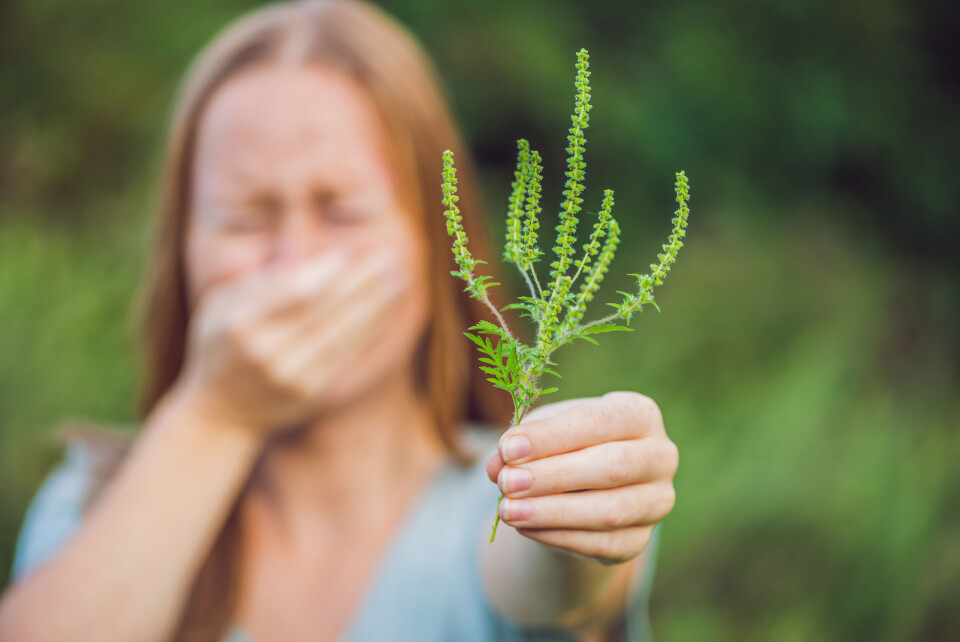-
More than 5,000 French communes use AI to identify poor rubbish sorting
Badly-sorted rubbish can cost millions so communes are turning to high-tech solutions
-
Tax on well-off retirees under consideration for 2026 budget
‘Nothing is off the table’ when it comes to finding €40 billion in savings says Labour Minister
-
Nice airport records passenger boom as tourists flock to city
Airport figures exceeded the pre-Covid record last year, with US visitors significant contributors
Plan against allergenic ragweed launched in south of France
The plant and its flowers, also known as ambrosia, can cause severe allergic reactions, especially in warmer weather – and it is spreading across France

The department of the Var in southern France has launched a plan to slow the spread of ragweed – also called ambrosia or mugwort – an invasive species of flower that can cause damaging allergies in humans.
The plan includes encouraging awareness in residents, and inviting people to help authorities to build a picture of its presence by reporting it online if and when it is seen on public land. Authorities will take action against the plant if its presence is judged as a risk.
The public can signal the plant at the Signalement Ambroisie website. There is also an app, an email address (contact@signalement-ambroisie.fr) and a telephone number (09 72 37 68 88).
#Ambroisie | ⚠ Cette plante exotique envahissante et nuisible à la santé humaine est désormais présente dans le #Var.
— Préfet du Var (@Prefet83) May 20, 2022
👁 Si vous la repérez, signalez-la ici 👉 https://t.co/1h4IxY6toU
🔴 Pour l'arracher, munissez-vous de gants
➕ d'infos 👉 https://t.co/Y3GvRX1AVM pic.twitter.com/nkr2Ry3l85
Var also encourages residents who wish to pull out the plant to wear gloves when doing so.
Originally from the US, ragweed came to France in the 19th century, probably in seeds transported by boat. Three types of the plant are now in Europe, and it is being found further and further north in France, partly due to climate change.
It can spread and grow very quickly, and is most commonly disseminated in seeds or pollen transported by farm machinery and vehicles, birds, in the soles of shoes, compost, and flower pots.
Just 10 grains of pollen in one metre cubed of space or air can cause severe allergic reactions in humans, including in the nose, throat, and eyes, and can even aggravate asthma. In rare cases it can also cause a rash or aggravate eczema.
National air quality network le Réseau National de Surveillance Aérobiologique (RNSA) classifies its risk as “high”.
It comes as pollen allergies intensify in France as warm weather arrives. Rising temperatures can cause allergies to flare up even worse than normal, as more pollen is released, and air pollution worsens.
Global warming is exacerbating the problem by extending the usual pollen seasons and pushing temperatures higher, with seasons expected to be noticeably longer and more intense by the end of the
century, according to a study in the science journal Nature Communications in March this year.
Related articles
Allergies in France: Do anti-Covid masks protect against pollen?
Red alert for birch pollen across most of northern France
Pull up this plant linked to severe pollen allergies
























